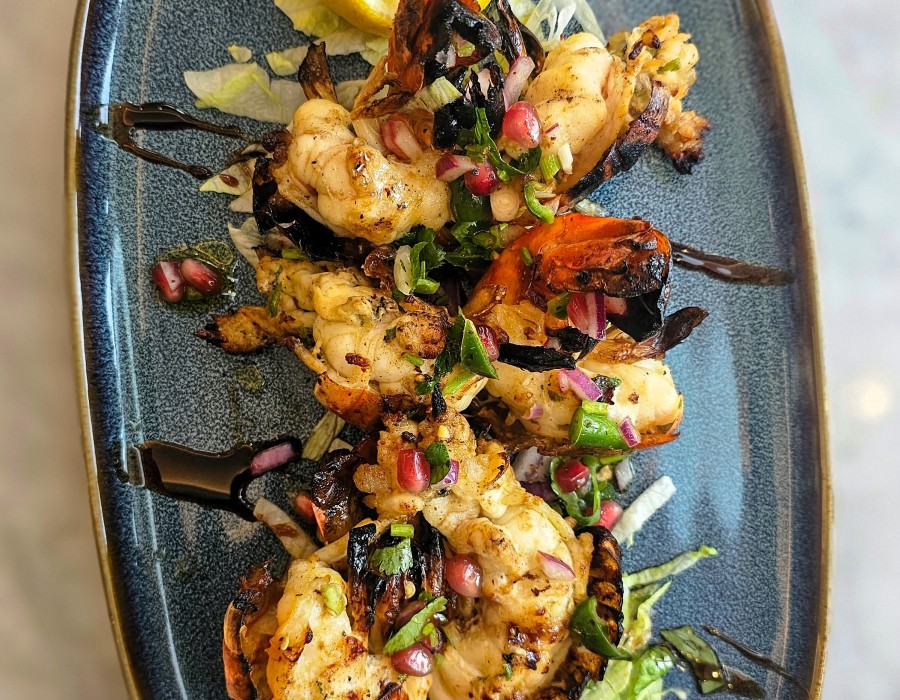Lebanese cuisine is celebrated worldwide for its unique flavors, vibrant presentation, and commitment to sustainability. From timeless favorites like Baklava to a wide array of plant-based dishes, Lebanese food is not only delicious but also mindful of the environment. Let’s dive into the best Lebanese foods and discover how this cuisine aligns with sustainable dining.
Why Lebanese Food Stands Out
The magic of Lebanese Food lies in its simplicity and deep-rooted tradition of using fresh, wholesome ingredients. Known for its mezze, Lebanese cuisine offers a little bit of everything, from creamy hummus and crisp falafel to zesty tabbouleh.
Lebanese meals typically consist of grains, vegetables, fruits, and herbs. This reliance on plant-based ingredients aligns with the global shift towards sustainable, eco-friendly diets. The tradition of eating locally and seasonally further cements Lebanese food as a model for sustainable eating.
Baklava - A Dessert with a Rich History
Baklava is undoubtedly one of the most popular Lebanese desserts, renowned for its flaky layers, chopped nuts, and honey syrup. This iconic sweet treat is made with layers of phyllo dough, stuffed with crushed nuts (often pistachios or walnuts), and lightly flavored with orange blossom or rose water.
In Lebanon, Baklava represents more than just a dessert. Its preparation is an art passed down through generations. The simplicity of the ingredients and the light sweetness of Lebanese baklava make it stand out from other versions, emphasizing the Lebanese culinary philosophy of “less is more.”
Sustainability in Every Bite
Lebanese cuisine embodies sustainability by incorporating environmentally friendly practices into everyday cooking. Some of these best Lebanese food and sustainability practices include:
- Emphasis on Seasonal Ingredients: Lebanese dishes use what’s in season, reducing the need for imported goods and promoting local agriculture.
- Reduction of Meat Consumption: Lebanese cuisine is predominantly plant-based, and meat is often a secondary ingredient. This approach not only benefits health but also has a positive impact on the planet.
- Innovative Use of Leftovers: Dishes like Fattoush and Shakshuka creatively repurpose stale bread, reducing waste and creating flavorful meals in the process.
- Community and Sharing: Lebanese food culture encourages communal eating, which naturally reduces food waste by sharing portions among diners.
Must-Try Lebanese Foods
If you’re looking to experience the best of Lebanese cuisine, here are some dishes you can’t miss:
- Hummus: Smooth, creamy, and rich in flavor, hummus is a classic Lebanese dip enjoyed with bread or vegetables.
- Baba Ghanoush: Smoky and savory, this eggplant-based dip is seasoned with garlic, lemon juice, and tahini.
- Falafel: Deep-fried balls made of ground chickpeas and herbs, falafel is a beloved street food in Lebanon.
- Tabbouleh: A refreshing salad packed with parsley, tomatoes, and bulgur, drizzled with olive oil and lemon juice.
- Kibbeh: A savory meat and bulgur dish that’s either baked or fried, often considered the national dish of Lebanon.
- Baklava: Lightly sweetened and nutty, Lebanese baklava is the perfect dessert to finish any meal.
FAQs
Q: Is Lebanese food vegetarian-friendly?
Yes, Lebanese cuisine offers many vegetarian and vegan options, including dishes like hummus, falafel, and tabbouleh.
Q: How is Lebanese Baklava different from Greek Baklava?
Lebanese Baklava is generally lighter and less sweet, with fewer layers of pastry and a subtle floral essence from rose or orange blossom water.
Q: Why is Lebanese food considered sustainable?
Lebanese food is sustainable due to its focus on plant-based ingredients, local sourcing, and minimal waste, all of which reduce its environmental impact.
Lebanese cuisine offers more than just exceptional flavors; it represents a thoughtful approach to food that promotes sustainability and community. Whether you’re indulging in Baklava or sharing a mezze platter with friends, Lebanese food is a delightful journey of taste and tradition.





Comments